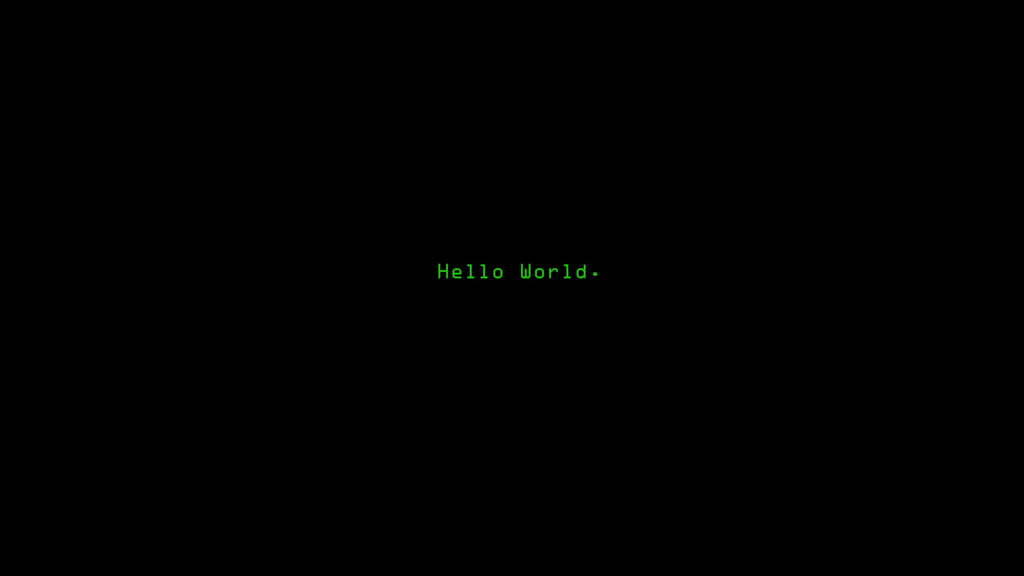I get it.
I don’t love Snaps either.
However, a thing I try to remember and wish others would as well is simply this: Canonical is a company. Their goal is to make money. They are not out to create the ultimate free as in freedom Linux distribution.
This does (to my mind) not make them evil, and ESPECIALLY doesn’t make the folks who work there evil. It makes them participants in the great horrible game that is Capitalism, and expecting anything else from them is going to lead to heartache, as you’ve seen.
If you want a Linux distro that shares your preferences and won’t try to jam snaps down your throat, you might consider giving Debian a whirl as many others have.
Continuing to ride the Ubuntu train and raging against the dying of the light when it continues chugging in the direction it’s been headed for YEARS seems … futile :)
Agreed.
For any (k)ubuntu refugees, do as I did and switch to Debian!
Or as I did and switch to fedora! (Debian’s also a really good option)
Nice to see that KDE is so well supported! I’d been running Manjaro KDE the last time I had Linux installed on my desktop but I may give Debian a try this time around.
How do snaps make money for Canonical?
I’m not gonna speak for Canonical but snaps enable commercial vendors to more readily ship their apps on the Ubuntu platform.
There’s no way to install a snap except through Canonical’s snap store (or snap store proxy, which gets them from Canonical’s snap store).
They’re charging for kernel security live patches. They charge for LTS. If they get enough buy-in re: snaps, they’re going to do the only thing a for-profit company can do.Red Hat and SUSE also charge for extended support, it’s literally the only fucking way to make money off of a distro
Canonical still offers 5 years standard at the enormous cost of 0.0$
Are you under the impression that they write all the patches?
No, but they actually do write some patches and they also do all the menial work, testing and verification to keep a piece of software serviceable for 10 years
If you think it’s easy, go and attempt it yourself. The greatest cure for people talking shit about needed effort, according to my experience…
Money is literally the very incarnation of evil via the Talisman it bears.
If they trying to make money then they are, not a fiber of otherwise, Evil.
You’re decision to not recognize the blatant & obvious Talisman does not make you correct. It’s not your choice. It’s the choice of that occult chant and signature.
Humans are inherently evil. There is but a thin veneer we call “civilization” that stops of from beating each other to death with whatever object can be brought to hand.
And what does any of this have to do with the price of tea in China? :)
I dunno, what does it have to do with the price of tea in China?
For my server I simply switched to Debian and add the packages I need on top, without all that proprietary snap crap.
For desktop I’m tempted to switch to an atomic distro like Fedora Silverblue (Gnome) or Fedora Onyx (Budgie), and for the Steam Deck I’d go with Bazzite.
Just go Debian.
Ubuntu used to bring a bit of spit and polish at a time when most Linux distros lacked that. Nowadays it brings nothing worthwhile to the table anymore, it’s just brand recognition, but what it does bring is aggravation for experienced users.
I had this realization a few years ago when I found myself fighting against 20.04 and I asked myself: what exactly is Ubuntu doing for me that plain Debian can’t? The answer was nothing really, so I moved all my Ubuntu VMs over to Debian Bullseye and never looked back.
Ubuntu is just getting worse and worse. I was pretty happy running Ubuntu server for years after moving from Gentoo; I jag lost interest in spending time taking care for that server and wanted something easy.
I went to Debian half a year ago and it’s been great. Should’ve done it earlier.
I gave up Ubuntu when they switched Firefox to a snap
I gave up Ubuntu when they switched to the Unity desktop. ugh!
I never understood why people run Ubuntu on servers. It’s madness. Ubuntu is a fork of unstable Debian packages. You don’t want unstable on your server!
Ubuntu on Desktop I can understand. Back in the days the Debian release was really long so much software was a tad outdated after a couple of years. But Debian had a much faster release cycle now, and had pretty much incorporated all the good stuff from Ubuntu and left the bad behind.
Ubuntu is a fork of unstable Debian packages. You don’t want unstable on your server!
Unstable does not mean crashes all the time. What makes them unstable on Debian is they can change and break API completely. But guess what, Ubuntu freezes the versions for their release and maintains their own security patches, completely mitigating that issue.
There are other reasons you might not want to use Ubuntu on a server but package version stability is not one of them.
Ubuntu on Desktop I can understand.
Not anymore. A whole extra, unneeded, proprietary, locked-in package system. Ads in the default install.
There’s Mint, Pop!, and plenty of other options that actually respect the user.
Definitely. But back in the day it was good for desktops. Ubuntu has never been good for servers.
Why?
We should be clear on our terminology here. Debian Unstable is called that because the package “versions” are not stable ( change ). It is not really a comment on quality although more frequent change also implies more opportunities for issues to be introduced. In Unstable, Debian may introduce disruptive changes either to configuration or even to the package library itself.
Regardless, taking a snapshot of Debian unstable and then separately supporting those packages completely eliminates these issues. That is what Ubuntu does.
Ubuntu LTS now offers up to 10 years of support without having to upgrade a release. This is far more “stable” than anything in Debian, including of course “Debian Stsble”. In fact, it exceeds the stability of Red Hat Enterprise.
I have not used Ubuntu in many years but I have been considering using it again for some server use cases precisely because it is now so “stable”. I still do not like Ubuntu on the desktop and do not like snaps in particular. I do not think snaps impact any of the server packages I would use though and I do not expect Canonical to introduce them during the support lifetime of a particular release.
For personal use, the 10 years of support is entirely free. That is pretty compelling.
I dont mind snaps but blocking deb installs by default on file clicks is a bad look.
Disappoint is a sober word here. I am actually pissed at the casual arrogance of Ubuntu and its parent company Canonical.
I’m actually baffled that this would come as a surprise to people. Canonical has been like this for a long time and you’d have to have blinders on to not see it. They are hell-bent on doing things their way and ignoring the wider Linux community and even their users. That is, of course, their prerogative and to some degree I even welcome their attempts at differentiating their distro from others. As a user though you should be aware of their history and the apparent direction they’re heading.
I just wish they’d stop stalling and went all-in on snaps already, since that’s pretty obviously where they’re headed.
Ubuntu has long suffered from NIH syndrome, constantly inventing its own non-standard components (snaps, Unity, etc) and trying to make them “win” by forcing them on their own users. Reminds me of Microsoft with its non-standard Internet Explorer, its own non-standard version of Java and others.
The lesson is to use a Community distro, not a Corporate distro. When the distro’s goals align with its community’s, even a distro based on Ubuntu will usually be better than straight Ubuntu. For example Mint keeps the good things about Ubuntu (in Mint’s opinion of course), removes the bad things like Snaps, and adds other features that the community wants that Ubuntu won’t (like built-in Flatpak support among other things).
This is why I moved to Linux Mint. Then, when I got tired of having to reinstall the entire OS every time there’s a new version I moved again. Spare a thought for the poor saps who feel stuck with an OS from a single vendor. And sometimes even paying for the privilege. That being said fund open source. Freedom isn’t free.
Mint has an auto-upgrade tool so you don’t have to reinstall each time. It used to be only for minor version upgrades but now you can auto-upgrade to a new major version as well. In any case there are plenty of great distros to choose from.
And yes! whatever distro (and other FLOSS software) you use, support them with a donation if you can! When you consider the value you are getting for free vs. what you’d be spending on proprietary software, it’s not so hard to do and feels good too.
Mint has been my goto desktop distro for many years now. It is everything Ubuntu used to be. For servers Debian is the answer.
For those that prefer non-debian based Linux then Fedora variants are the way to go.
Also… the amount of money I’ve saved by being able to revive old hardware! I haven’t bought a new computer in 11 years. My computer before that (and still working) was a gift in 2006… that bitch is old enough to vote.
I have other computers that people have given to me because they were “just too old,” but for me, it was an upgrade. I revived a windows 98-era HP a few years ago, just so I could use the 9-pin connection to fix my bricked OG Xbox that I was modding.
Granted, I don’t game on PC or require heavy lifting (though I am saving for a personal build, because there’s some hobbies I just can’t do without a good desktop), but for everyday use, I have more than enough.
I currently have 4 “working” computers. Two of them are my main, one still needs to be “reinvigorated” (it’s 18 years old), and one is my server.
I have a 5th desktop that was given to me (because it was too slow/old), and it just recently crapped out on me (either because of windows bullshit, or a bad hdd. But I have my hunches). So it’s about to be revived when I have time.
Hardest part was getting my wife onboard with switching to Linux, instead of buying a new computer. But now she’s getting ready to switch her Mac to Linux because it’s been struggling. And I think she’s starting to realize that a brand-new computer isn’t really “necessary”, if all you’re doing is email, browsing web, and editing docs. Shit, our phones can handle most of that; you don’t need a $1k+ computer for that, or pay for windows software that will barely work on the hardware you have.
So yeah… end rant. Absolutely love how much Linux has breathed new life into my old hardware. Has saved me time and time again, as well as a bunch of money. I definitely need to throw a donation at a distro, cause they have saved me more than just money at this point
I was on Mint over 10 years ago and noped out of it when an auto update borked my system. I can’t remember what it was, and maybe if it happened to me today, I could work my way through it. But, as it stood at the time, I remember feeling rolling was the way to go.
Give a shot for Fedora!
“I understand that Canonical has every right to make the decision about their product.”
That seems fair. There are loads of distros available so why not try something else if you don’t like Ubuntu?
Linux and other mainstream Unices such as FreeBSD or OpenBSD int al (that’s not something I ever thought I’d be able to say a few decades back) are not Windows or Apples or whatevs. You do you and not them!
If Ubuntu fails to scratch your itch then move on. Debian is the upstream for Ubuntu so you’ll probably be fine with that instead. There is loads of documentation for Debian via the wiki etc and of course most Ubuntu docs will apply as well.
Idk, I probably haven’t used Debian derivatives long enough, but isn’t installing random .deb-s somewhat of a bad practice? I mean, repos exist for a reason (ignoring the fact they usually have like 3 packages in the official repos)
Baah. KBIN just ate my reply.
Point form since I forgot to save to clipboard first.
Tried mint - booted to black screen
Tried ubuntu - got silly crashes like in the post trying to install stuff. It also wanted me to sign up for some sort of support package with 5 free devices to get updates or something. Also, trackpad scrolling was uncontrollable. Would scroll up half a screen or more as I lifted my fingers off.
Tried fedora - only 100% and 200% zoom option, and no right click.Managed to fix the fedora issues with some command line found on Google and a gnome customising addon.
n00b here, just playing. Can’t migrate fully as I need VBA and Playit Live etc.
I do wonder what kind of gardware you have… And if it’s maybe defective?
Asus F555D - 12G RAM, AMD R8 M350DX GPU and a sticker that says Radeon Dual Graphics. That’s probably what was tripping up the system booting to a black screen.
I could barely make out the straw man hiding between the ads. The author is working hard for them clicks!
It’s 2024, use an adblocker
Does this mean you have to use apt-get to get the deb version again? Or is there an even more complicated command? I’m wondering what happens for the other Ubuntu flavors. I’m usually running Kubuntu.
It is about installing .deb that you manually downloaded from somewhere. You can’t install them by double clicking on them, you have to install from command line.
You absolutely could in the past.
I don’t get the anger. Just install your software as snaps. What’s the problem?
I’ve seen a video where the guy installed steam on Ubuntu 24.04. Of course it was the snap. The guy usually tests distro to see of it’s easy to game on it. If the drivers are easy to install, etc…
He usually launches steam, then tests Valheim, Overwatch, Tomb Raider and cyberpunk.
Overwatch didn’t launch, cyberpunk neither. Valheim reported that a service didn’t launch. Tomb raider was OK.
Then he uninstalled the steam snap and installed the .deb one. Everything worked.
Enforcing packages is already something that people don’t appreciate on Linux, enforcing packages that don’t work is surprisingly hated.
Ubuntu is supposed to be a distro for beginners, how am I supposed to recommand a distro when I have no confidence the applications will work ?
Is this snap stuff something the Ubuntu variants avoid I.e Ubuntu studio and Ubuntu budgie?
Does Linux Mint count as an “Ubuntu variant”?
No. It based on Ubuntu but without all the bullshit. .deb ist standard and flatpak is also built in. Whenever both are available, you get a choice right from the software manager. Mint is very much its own thing and great if you want to ditch Ubuntu.
Well, it’s complicated, isn’t it?
Ubuntu is built on Debian’s skeleton. RHEL is built on Fedora. Many more examples.
Linux Mint is based on Ubuntu, but in a much deeper and more connected way than Ubuntu is based on Debian. It even shares many of the same software repositories.
The next closer level is how Xubuntu, Lubuntu, and Kubuntu are just slight variations of Ubuntu. People like to call these “flavours”.
Finally, you get to the closest layer—the thousands of people who have taken a stock Ubuntu installation and swapped out one or two components to meet their requirements. We don’t even think of these as distros in their own right.
It’s a continuous spectrum, and any labels we try to apply will be pretty much guaranteed to have fuzzy edges.


















